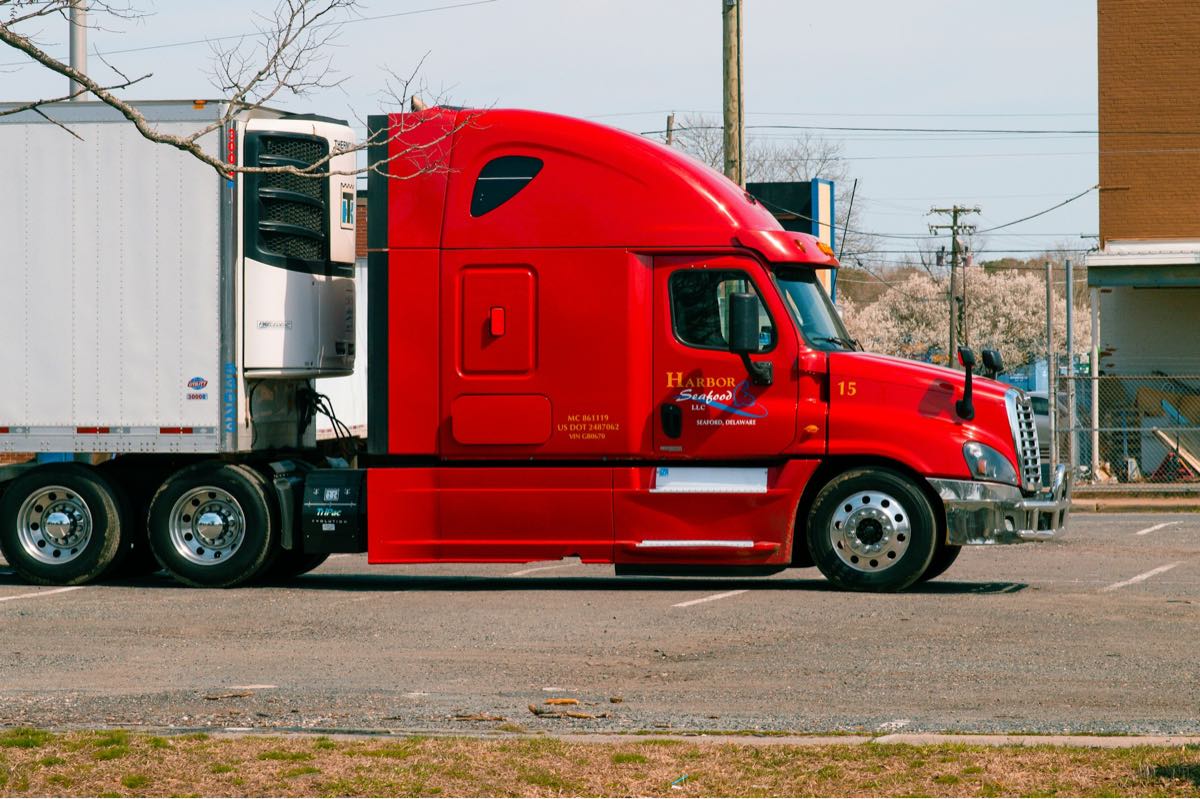Beyond its well-known sunny disposition, Florida’s appeal reaches much beyond that, attracting a varied population with its special fusion of natural beauty, economic opportunity, and cultural diversity. One of the main draws of the state is its warm temperature, which provides year-round outdoor activities like exploring the enormous Everglades and relaxing on some of the most gorgeous beaches on earth. Florida’s thriving cultural, entertainment, and culinary centers, such as Miami, Orlando, and Tampa, make the state more than simply a popular travel destination—many people actually choose to make it their home. The state’s economy, which is supported by tourism, agriculture, and technology, offers plenty of options for job relocation, which increases its allure.
Whether you’re moving permanently, staying for a season, or simply sending a car ahead for a much-needed vacation, knowing the intricate details of auto shipping to Florida is essential for a seamless transfer. The procedure entails selecting from a range of possibilities and comprehending that prices might change dramatically based on a number of variables, such as the season, the kind of transport service selected, and the specific requirements of the vehicle. In order to help readers make sense of these complexity, this publication provides information on how to ship a car. It guarantees that your car’s trip to the Sunshine State is as smooth and stress-free as possible by explaining the shipping procedure, freeing you up to concentrate on the thrill of discovering all Florida has to offer.

Factors Influencing Price
A number of variables can have a big impact on the ultimate amount you pay when shipping a vehicle to Florida. Every factor, including the kind and size of the car and the distance it must go, is important in figuring out how much it will cost. Prices may also differ depending on the location for pickup and delivery as well as the option of open or enclosed transport. Costs are also influenced by the time of year you choose to transport your car; increased demand in the summer usually results in higher prices. You may more accurately estimate the costs involved and perhaps even find places where you could save money if you are aware of these issues in advance.
- The Vehicle Category and Dimensions: The two main factors that affect shipping costs are the size and kind of vehicle being sent. There are fewer automobiles that can be transported at once since larger vehicles, including SUVs, pickups, vans and trucks, not only weigh more but also take up more room on the transport carrier. Compared to compact cars or midsize sedans, bigger vehicles have greater transportation costs due to their increased weight and space requirements.
- Total Distance from Pickup to Delivery Location: The amount of miles between pickup and drop off locations is a direct component that impacts how much car shipping costs. Longer distance car shipping comes at a greater expense for labor, gasoline and tolls. All the same, long-distance shipments are more economical per mile since the rate per mile tends to drop with increasing distance. Longer trips will cost you more overall, but the effectiveness of the transportation will be able to offset part of the per-mile costs thanks to this cost-scaling method.
- The Type of Transport Chosen: The decision between enclosed and open auto carrier transport has a big impact on shipping costs. The most popular and economical method, open transport, exposes cars to the weather and maybe even road debris. Enclosed transport, on the other hand, is a better choice for transporting brand new, expensive, classic, or luxury cars as it offers more protection from the elements, unseen road dangers along with offering higher cargo insurance limits. The cost of this additional security is more than that of open carriers because of the specialized service and lower capacity.
- The Locations for Pickup and Delivery: The cost is also influenced by how easily accessible the pickup and delivery places are. Because of the shorter travel distances and higher levels of efficiency, shipping to and from big cities or places that are conveniently accessible from major routes is typically less expensive. On the flip side, because it takes longer and requires more fuel and effort to get there, shipping a car to or from distant or challenging-to-access regions can get more expensive. This part of price is heavily influenced by logistics, as carriers frequently charge extra for services that require deviating from their regular routes.
Average Costs and Examples
Anyone planning to ship a car to Florida needs to be aware of the variety of expenses associated with this process. A wide range of parameters, such as distance, vehicle type, mode of transportation, and season, might affect the cost. To help you better understand what to budget for when you ship a car to the Sunshine State, we’ll go into more detail about these expenses in this section with examples.
- Short Intra-state Transports: Costs are comparatively cheaper for shorter routes within the same state, with starting prices at around $400. The cost of shipping a car from Miami to Sarasota, which is about 220 miles away and costs $275, best illustrates the lowest end of the scale. Another intra-state transport, also on the lower end of the spectrum, is best shown by the cost of shipping a car from Tampa to St. Augustine, which is around 191 miles away and comes in at $325. Shipping a car from Jacksonville to Fort Myers, which is around $425 and 280 miles away, is another common route inside Florida. This illustration demonstrates the cost of shorter-distance transportation inside Florida, which is made possible by the vast and effective transportation system in the state.
- Long Cross-Country Shipments: Costs always rise when transportation entails crossing the country because of the longer travel times and bigger distances. For example, inter-state car shipping from Dallas, Texas to West Palm Beach, Florida, will cost approximately $725 and cover a distance of over 1,300 miles. While, shipping a car from California to Sarasota is a long-haul relocation that can cost up to $1,425 (more than 2,500 miles). This is a reflection of the higher fuel consumption as well as the planning and effort needed to move a car across such a large distance safely.
These examples show the wide range of prices depending on distance, but it’s crucial to keep in mind that other elements like vehicle size, type, and whether you choose open or covered transport can also have a big influence on the total cost. Whether you’re arranging a short intra-state car shipping within Florida or a long cross-country car shipping move, knowing these cost factors will enable you to make sensible choices that fit your requirements and financial constraints.

Documentation and Requirements for Car Shipping to Florida
A seamless and legal transfer is ensured by obtaining the necessary paperwork while getting ready to ship a car to Florida. Even if the rules are simple, it is imperative that you comprehend and follow them in order to prevent inconveniences. This section will examine the specific documents required and give an overview of the circumstances in which each one is necessary.
- The Vehicle Specifics: For all auto shipments, you must supply detailed information about the vehicles you are shipping. The vehicle identification number (VIN) – not always necessary, license plate number – not always necessary, make, model, and year are all included in this. For the transport business to correctly identify your car and get ready for shipment, these pieces of information are required.
- Proof of Insurance and Photo ID (for International Shipments): If you’re shipping a vehicle from abroad into Florida, photo identification (such as a driver’s license or passport) and proof of insurance are necessary. These documents verify the shipper’s identity and ensure the vehicle is covered under an insurance policy during transit.
- Proof of Vehicle Insurance (for Domestic Shipments with Gap Protection): Proof of your vehicle’s insurance is needed when shipping within the United States and choosing to add extra gap protection throughout the shipping process. This fills in any possible insurance coverage gaps during the vehicle’s journey, extending your current policy.
- The Shipper and Consignee Contact Information: It is required to provide the names, contact information (phone and email addresses), and physical addresses of the vehicle’s sender (shipper) and recipient (consignee). Clear communication between the shipping company and all parties involved throughout the shipment process is made easier by this information.
- The Proof of Ownership: For domestic shipments within the United States, evidence of ownership—such as the vehicle registration or title documents—is usually not required. Nonetheless, it is best practice to have these documents on hand, particularly for shipments going abroad or in the event that the shipping company requests proof of ownership.
Comprehending these prerequisites and getting your paperwork ready beforehand will greatly expedite the procedure of shipping a car to Florida. Whether shipping from overseas, from within the state of Florida, or from another state in the United States, making sure you have the required paperwork on hand can reduce any delays and issues.

Proper Vehicle Condition Ensures a Smooth Shipping Experience
The vehicle’s state has a significant impact on the shipping procedure, affecting the price as well as the handling needs. A well-equipped vehicle may expedite the transfer, minimize possible problems, and possibly save costs. We go into detail on how to get your car ready for shipping below, stressing the value of cleaning, packing up personal belongings, and making sure it runs. By taking these precautions seriously, you may help the company that handles shipping with logistics while also protecting your car.
- Make Sure the Vehicle is Clean: It’s not just about appearances when you clean the car before shipment; it makes for a more precise examination both before and after the trip. When an automobile is clean, any dents, scrapes, or other damage are more visible and easier to record, giving an accurate record for insurance companies. Protecting your investment and making sure any losses caused by transportation are taken into consideration require taking this preliminary step.
- Make Sure to Remove Personal Items, Unless You OK’d it with Your Transport Coordinator at Booking: It’s important to take out your personal belongings from your car for a number of reasons. First of all, personal belongings are not insured by the carrier, therefore you will be liable for any loss or damage to them while in transit. Second, carrying more stuff may make the car heavier, which might have an impact on fuel economy and transportation expenses. Finally, it is advisable to remove any enticing items from the vehicle for the sake of security and privacy. If you do need to put some items in the car while it is being shipped, make sure to talk to your transport coordinator at the time of booking your car shipment.
- Make Sure the Vehicle is Operable: It is crucial to make sure that the car is able to start, steer, and brake properly before shipment. Operating cars are less difficult to load and unload, which can save money on transportation. You have to notify the shipping company ahead of time if your car won’t start up again since extra handling and equipment will be needed, which will raise the total cost. Moreover, additional costs for winching or other specific loading processes are less likely to apply to functional cars.
You may save yourself extra trouble and expense by closely monitoring the state of your car before shipment. Everyone benefits from a simpler transportation procedure when the vehicle is empty, operational, and clean since it is less expensive as well as simpler to transport.

Choosing the right car transportation option requires knowing how various services differ from one another and figuring out which one best suits your requirements and price range. Making this choice will impact not just the price but also the degree of protection your car will have while in transportation. Here, we go over the important factors to take into account when deciding between covered and open shipment, making sure your car is properly insured, and picking an auto shipping company that meets your standards for dependability and customer care.
- Open vs. Enclosed Transport Types: For many, open carriers—the most common kind of carriers used for vehicle shipping—offer a financially sensible choice. These carriers can move many cars at once, which lowers the cost of moving each vehicle considerably. But they expose vehicles to the weather and debris on the road, so it might not be the best option for all kinds of cars. Conversely, enclosed transportation offers a protected atmosphere that shields cars from outside factors. This choice is especially advised for brand new, expensive, luxury, or classic vehicles that require extra protection against possible damage during transportation in addition to higher cargo insurance limits.
- Security and Insurance: It is a must to get your car insured for transportation. Although the majority of shipping companies provide insurance of some kind, the specifics and scope of coverage might differ greatly – the auto carrier company aka the transporter provides insurance for the transport. It’s critical to comprehend exactly what the insurance will cover, how much the deductible will be, and how to file a claim in the event that the car is damaged. Certain companies go over and above by providing assurances and/or supplement coverage against damage incurred during transportation, which can give customers even more peace of mind – additional assurances and/or supplement gap protection are provided by the car shipping company aka the broker.
- Picking a Reliable & Trustworthy Shipping Company: Your level of happiness during the automobile shipping procedure can be greatly impacted by the dependability of the shipping company that you pick. Look into possible companies insurance policies, service records, and online customer reviews before moving forward – you can do this for both the car shipping broker and the car shipping carrier. You are more likely to get the results you need from a business that has clear policies and frequently receives favorable feedback. Take into account how much experience they have shipping cars just like yours, and make sure they can offer the particular services you need, such as covered transport or door-to-door delivery.
Making a well-informed decision that guarantees your car’s safe, effective transportation to its destination requires carefully weighing each of these variables. The best option for you will depend on your unique situation and how much importance you place on the care provided for your auto while it’s being transported, whether you want to prioritize safety, cost, or both.

With the correct shipping partner, planning, and a clear grasp of the process, navigating the complexity of automobile shipping to Florida becomes astonishingly simple. There should be no anxiety or ambiguity during the process of shipping a car to the Sunshine State. Essential stages include making sure your car is prepared for transfer, learning about the associated expenses, and organizing your trip effectively. Selecting a trustworthy shipping company ensures peace of mind in addition to improving this experience. Whether you’re moving for business, pleasure, or to give someone a car as a gift, careful planning and wise selection are essential to a successful auto shipment.
Ship A Car, Inc. stands out as a top supplier of auto transportation services both inside and outside of Florida. Their commitment to client satisfaction, together with comprehensive insurance coverage and a variety of transport choices, minimizes stress and expedites the shipping process. Ship A Car’s ability to provide customized shipping options throughout Florida that meet a variety of car types and shipping requirements is what sets it apart. Whether you’re shipping into or out of Florida, their knowledge and wide network provide the prompt and secure delivery of your car, from the panhandle to the keys.
For your Florida vehicle transport needs, you can make a dependable and confident choice by going with Ship A Car, Inc. Their dedication to quality, together with favorable client testimonials and an array of shipping options, establishes them as the premier option for guaranteeing the safe transit of your car. The first step to a hassle-free automobile shipping experience to or from Florida is getting in touch with SAC. Get in touch with them right now for a free, no-obligation estimate and start your journey smoothly with a reliable partner in auto transportation.
Q: What is the average amount of time it takes to ship a car to Florida?
A: The amount of time it takes to travel is contingent on the origin as well as the mode of transportation that is selected. It may take a few days for shipments to arrive from neighboring states, while it may take up to ten days for transports that span the whole country.
Q: Can I transport my personal belongings in my vehicle?
A: Although it is possible to transport personal things in your vehicle, you should be aware that the insurance provided by the carrier does not cover these items, and there may be additional fees associated with shipping them. Make sure to speak with your transport coordinator prior to putting any personal items in the vehicle for transport.
Q: When it comes to shipping my car to Florida, what are the best ways to receive the greatest deal?
A: If you want to get the greatest deal, you should make a plan in advance, ensure that your schedule is flexible, and get different quotations so that you can compare pricing. Don’t forget to ask your transport coordinator if you are eligible for any discounts.
*All data and car shipping rates found in this article are accurate at time of publication and subject to change.




